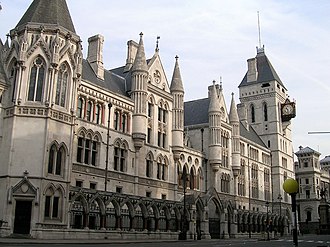Paragraph 1: The global oil market experienced a significant shockwave following a dramatic escalation of tensions between the United States and Iran. Reports of coordinated US-Israeli airstrikes targeting key Iranian nuclear facilities sent crude oil prices soaring, with predictions of surpassing $80 per barrel. Iran, a major oil producer within OPEC, retaliated by threatening to shut down the Strait of Hormuz, a crucial chokepoint for global oil supply. This strategic move further intensified market anxieties and pushed Brent crude prices higher. The initial attacks, described as a “preemptive defensive strike” by the US, significantly damaged Iran’s nuclear infrastructure, marking a dangerous escalation in the Middle East conflict.
Paragraph 2: The surge in global crude oil prices and the volatility in foreign exchange markets sparked concerns in Nigeria, where marketers warned of a potential petrol price hike to N1,000 per litre. Energy analysts cautioned that if Brent crude reached the $80 per barrel mark, the pump price of Premium Motor Spirit (petrol) in Nigeria could reach this unprecedented level. Private depots began preparing to increase loading costs, potentially triggering a chain reaction of price increases throughout the supply chain. The potential for such a sharp rise in fuel costs raised alarm bells for Nigerian consumers.
Paragraph 3: The Dangote refinery, a significant player in the Nigerian fuel market, played a crucial role in the unfolding price dynamics. After initially raising petrol prices from N825 to N880, other filling stations followed suit, increasing their prices to an average of N955 in various regions. The refinery’s pricing decisions had a ripple effect, influencing the market and prompting other retailers to adjust their prices accordingly. Lagos maintained the lowest prices, with some stations selling at N925 per litre. The fluctuation in Dangote’s prices served as a key determinant of overall petrol prices in the Nigerian market.
Paragraph 4: The Independent Petroleum Marketers Association of Nigeria (IPMAN) attributed the price hikes to the escalating Israel-Iran crisis, which disrupted the global crude market and pushed up prices. Coupled with the volatile foreign exchange situation, this created a challenging environment for petrol pricing in Nigeria. The increased cost of lifting 50,000 litres of petrol placed significant financial strain on independent marketers, forcing them to reassess their pricing strategies and consider further increases. IPMAN warned that petrol could reach N1,000 per litre in some northern regions due to the added burden of transportation and logistics costs.
Paragraph 5: The interplay of international market forces and domestic cost pressures created a complex pricing landscape for petrol in Nigeria. Even locally refined petrol from the Dangote refinery faced price increases due to its reliance on internationally sourced crude oil. The fluctuating global crude prices diminished the anticipated price advantage of domestically refined petrol over imported products. Marketers anticipated retail prices between N930 and N990 per litre, with regional variations influenced by factors like depot proximity and delivery methods.
Paragraph 6: The escalating tensions in the Middle East caused Nigerian crude grades like Bonny Light, Brass River, and Qua Iboe to exceed $78 per barrel, surpassing the government’s 2025 budget benchmark. This surge in crude prices, driven by geopolitical instability, had a direct impact on local fuel prices. Analysts predicted further increases, with Brent crude potentially gaining $3 to $5 per barrel and WTI crude gaining $4 to $5. The possibility of Iran closing the Strait of Hormuz added to the market uncertainty, as this strategic waterway handles a significant portion of the world’s oil supply. While there were hopes for de-escalation and a fading risk premium, the immediate impact on oil prices was undeniable. The situation highlighted the interconnectedness of global geopolitics and energy markets, and the vulnerable position of countries like Nigeria reliant on imported or internationally priced crude oil.













